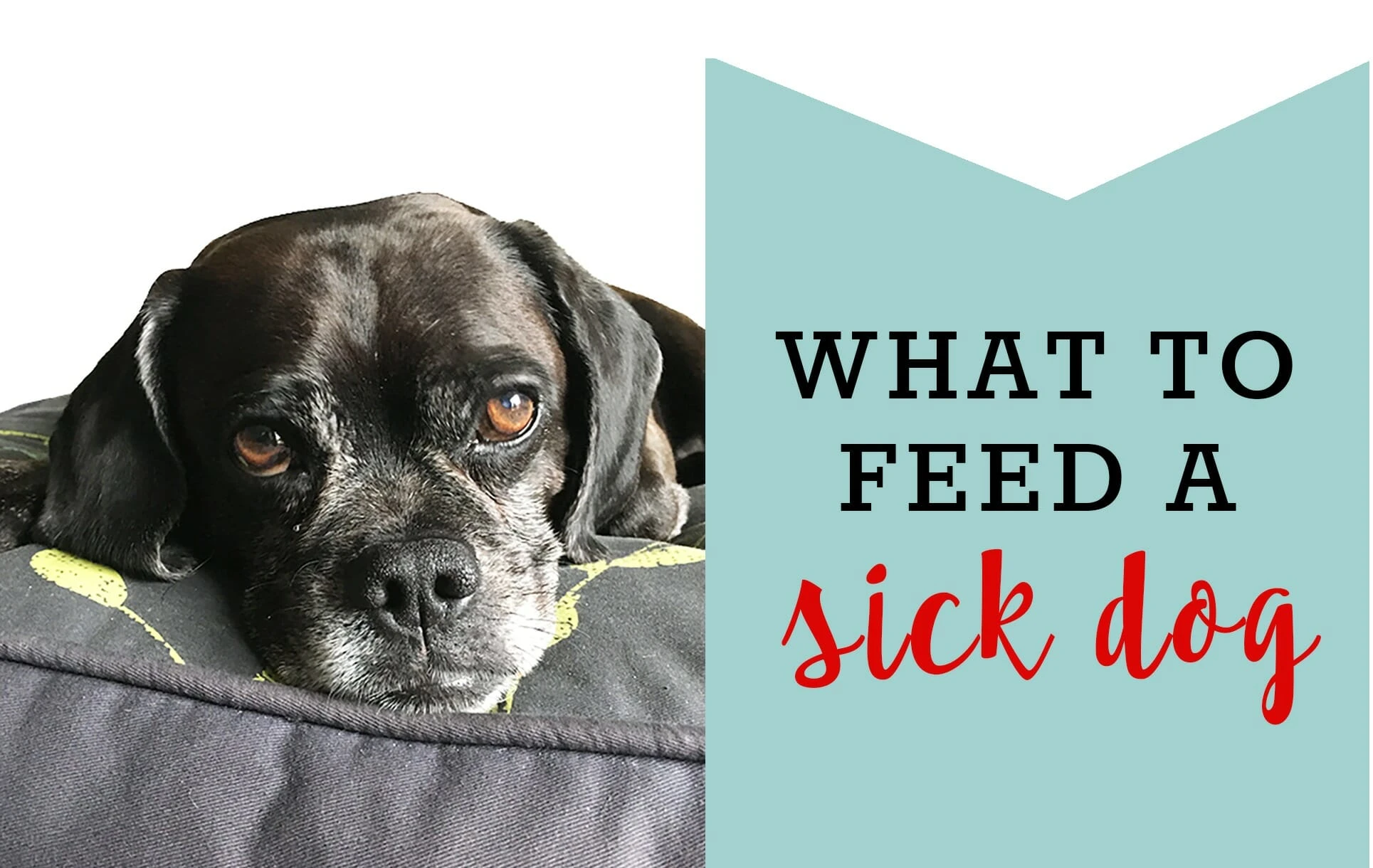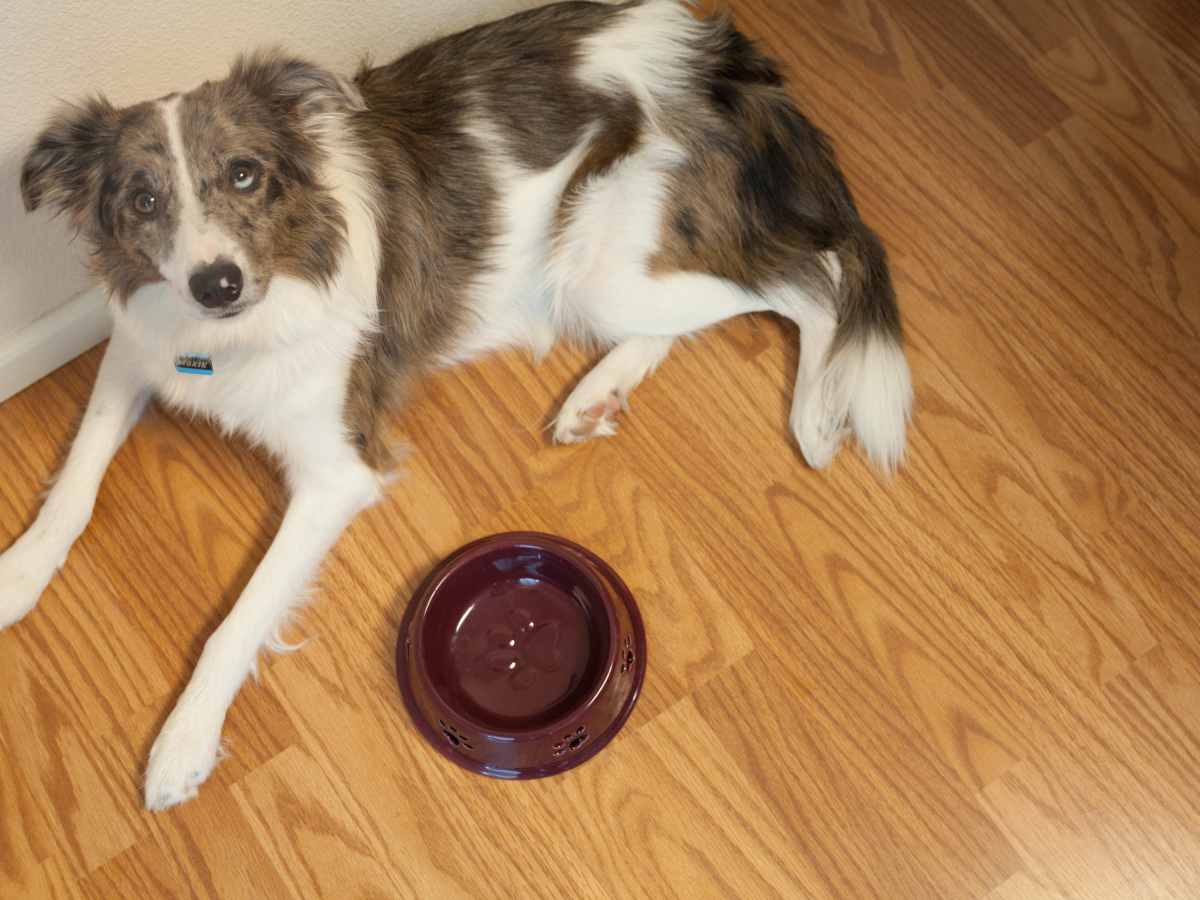
Its a good idea to keep a log of what your dog eats and drinks the amounts he consumes and his behavior. A perfectly healthy dog can vomit out of the blue and then go about the rest of the day just like everythings normal.

Small dogs weighing less than 30 lbs can be given 5 ml 1 teaspoon of liquid and large dogs weighing over 30 lbs can have 15 ml 1 tablespoon of liquid.
Feed a vomiting dog. What to feed a dog that is vomiting. The rule of thumb to remember is the blander the better. If your dog threw up his stomach is in a very fragile state and you want to offer him very small portions of bland foods.
If you do not think your dog is ready for solid foods try offering him basic bone broth. Do not feed your dog for 12 to 24 hours. Once your dog has not vomited for at least 6 hours you can offer a small meal.
A bland easily digestible food such as cooked white rice mixed with boiled white meat chicken no bones or skin is ideal but you can also use a small portion of your dogs regular diet. What to feed a dog after vomiting. If your dog keeps it down offer a small amount of bland food2 like plain white rice with boiled chicken or lean meat.
After boiling bland food for your dog drain off as much fat as possible. Do not add any salt or other seasonings. Offer your dog a couple of tablespoons of the bland food mixture.
Instead of feeding it you should increase the amount of water you give your dog and do this gradually if it drinks too much at once it can start vomiting again. Therefore you should give it water slowly during this time of fasting to keep it. Feeding him a small amount at first and then increasing that amount each day prevents him from stuffing himself to the brim and vomiting again.
Washington State University College of Veterinary Medicine suggests feeding your dog his bland diet three to six times a day. The amount of food you should give your dog depends mostly on his size. Stop feeding your dog if he begins vomiting again and take him to the vet.
Its a good idea to keep a log of what your dog eats and drinks the amounts he consumes and his behavior. This will be useful information for the vet. Dont experiment with food or medications since this could make your dogs vomiting worse.
Once the dog shows signs of improvement gradually come back to their regular food until theyre eating 100 of their normal diet again. Keeping your dog hydrated when theyre vomiting or have diarrhea is essential to help them recover but giving too much water may make their stomach even more upset. Once your dog has stopped vomiting you can start to re-introduce their normal food again.
To prevent dehydration your dog may need to drink more to replace the water theyre losing in their vomit. Provide plenty of fresh water and make sure your dog is drinking little and often throughout the day. A dog vomiting is potentially serious but puppy vomiting should always be treated as a potential emergency.
After six weeks puppies. What should I feed my dog after vomiting. A bland easily digestible food such as cooked white rice mixed with boiled white meat chicken no bones or skin is ideal but you can also use a small portion of your dogs regular diet.
If your dog does not eat pick up the meal and try again a few hours later. If your dogs vomit is chunky or granular this is usually as a result of food that was eaten or items that your dog shouldnt have eaten that didnt agree with him. If the vomit is clear slimy or foamy that means that your dogs stomach was emptied when he vomited.
Other more serious causes of vomiting include inflammatory bowel disease liver or kidney disease or obstruction after your dog has eaten a foreign body like a piece of a toy. In these cases the vomiting will be repetitive and feeding your dog according to guidelines for other less serious causes of vomiting wont resolve the issue. Consider white meat chicken with no skin or bones white rice potatoes lean hamburger or low-fat cottage cheese.
Work your way up portion wise. Start with something the size of golf ball and progress from there every 3 to 4 hours. Monitor his tolerance adjust according to his frequency and magnitude of diarrhea.
Provide plenty of fresh water. Its important that after your dog has vomited to help them avoid becoming dehydrated by providing clean fresh water. If your dog begins to drink more or less water this could be a cause for concern and you should consult a vet as soon as possible.
The best way to prevent vomiting is to keep your dog away from items he should not eat lick or chew. Of course sometimes there is no way to prevent vomiting in your dog since many illnesses occur with no known cause. The good news is that there are a few things you can do to minimize the risks of vomiting in dogs.
If after 12 hours your dog hasnt vomited begin the following supportive care. Offer a small amount of balanced electrolyte oral rehydration solution. Small dogs weighing less than 30 lbs can be given 5 ml 1 teaspoon of liquid and large dogs weighing over 30 lbs can have 15 ml 1 tablespoon of liquid.
Dogs will eat their own vomit because it is a food source. There may also be an instinctive element to the behavior as eating vomit may hide traces of the dog from predators. Vomiting can signal that a dog is unwell too so hiding the evidence increases their chance of survival.
Regurgitation which can appear similar to vomiting to the. Vomiting Whats Normal and Whats Not Normal. A perfectly healthy dog can vomit out of the blue and then go about the rest of the day just like everythings normal.
Your dog might have simply eaten food too quickly or ingested a little too much grass in the backyard. If the dog doesnt show any other symptoms they should be fine. To cure frequent dog vomiting start by withholding food for 12 hours after the vomiting occurs to settle your dogs upset stomach.
You can give it small amounts of water every 2-3 hours during this time. After 12 hours of fasting feed the dog bland foods that it can easily digest like a mixture of cooked white rice and boiled chicken. If your dog is bright with only a mild tummy upset then you could fast them for a short period up to 12 hours followed by small amounts of a bland food such as a commercial sensitivity diet or in a pinch cooked chicken white fish and boiled rice.
Water should never be withheld however. Dogs with this condition usually vomit in the morning after not eating all night. Treatment is to feed late at night.
H2 blockers and anti-emetics can also be used. Bilious vomiting syndrome is a diagnosis of exclusion meaning that the dog is normal otherwise and no other causes of the vomiting have been found.